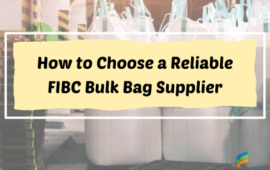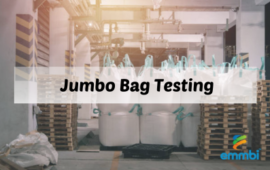Our planet is warming up faster than we had ever thought. While the Earth’s temperature had risen by only 0.08° Celsius per decade since 1880, the rate of warming has more than doubled to 0.18° Celsius per decade since 1981. [1]
The tangible impacts of climate change are too real to ignore. Take the latest example of the United Kingdom (UK) which is reeling under an unprecedented heatwave that is making train signals melt and damage rail tracks.[2]
Plastics And Climate Change
Since their mass production began in the 1950s, plastics have become an inseparable part of our daily lives.
However, because of their non-biodegradable nature, plastics pose a threat to our environment. Taking anywhere between 100 – 500 years to decompose, single-use plastics usually end up in landfills or oceans, causing land and sea pollution, and high levels of greenhouse gas (GHG) emissions.
Since the release of Sir David Attenborough’s pathbreaking TV Series ‘Blue Planet II’, the chorus for banning single-use plastics has grown louder. However, it was the advent of the COVID-19 pandemic that made many realize the true value of single-use plastics.
From face shields to syringes to sanitizer bottles, the same single-use plastics that were demonized for years, turned out to be life saviors. That being said, there are no two ways that everything should be done to minimise the usage of single-use plastics.
The Solution: Reduce, Reuse, Recycle
In most scenarios, staying without plastics is neither practical nor economically feasible. The issue is not that we use plastic, the issue is that we do not use it smartly.
Globally, billions of dollars are being spent every year to find practical alternatives to conventional plastics, especially in the packaging industry. One such alternative is Biodegradable Plastics (BDPs) which are manufactured by adding bio-compounds derived from corn sugar, potatoes, or sugarcane.
BDPs take only three to six months to fully decompose[3]. However, BDP manufacturing is still at a nascent stage making them an impractical solution at a mass level.
Considering their undisputed benefits, we need to keep plastics in our economy but out of our environment. A practical approach to creating such a circular economy is to minimize the production of new single-use plastic products by reusing and recycling the existing ones.
To discourage the use of single-use plastics, successive governments have come up with various regulations – from outrightly banning them[4] to mandating the use of recycled plastics wherever possible.
The latest example is that of the UK government’s ‘Plastic Packaging Tax (PPT)’ that came into effect from April 2022. Applicable to plastic packaging that is either produced in or imported into the UK, the PPT levies a penalty of GBP 200 per tonne of finished plastic packaging components that contain less than 30% recycled plastic.
Impact Of Plastic Packaging Tax On The FIBC Ecosystem
Flexible Intermediate Bulk Containers (FIBCs) play a crucial role in industrial packaging. Designed from woven polypropylene (PP), FIBC bags are the most feasible alternative to single-use plastic bags.
With load carrying capacities up to 2500 kgs, FIBC bags can be custom designed and used for a wide range of use cases. Since they are made from synthetic fabric, FIBC bags are recyclable resulting in a lower accumulation of non-biodegradable plastic.
However, as polypropylene is a type of thermoplastic, the new Plastic Packaging Tax equally applies to FIBC bags manufactured or imported into the UK.
How Emmbi Is Creating A Circular Economy For Plastics
As one of the global leaders in polymer processing, Emmbi has indigenously developed Reclaim30 – a compatibilizer-based technology that ensures 30%+ recycled PP in its FIBC bags.
Emmbi’s Reclaim30 is the world’s first and only Labordata-certified recycled FIBC bag with Safety Working Loads of 1000 kgs, 1250 kgs, and 1500 kgs in a 5:1 Safety Factor.
With an advanced in-house reprocessing facility, Emmbi’s state-of-the-art infrastructure can seamlessly generate material in excess of 500 MT every month ensuring consistent and time-bound supplies. For additional shiploads, Emmbi has already partnered with leading processors.
Furthermore, Emmbi’s Reclaim30 FIBC bags come with an assurance of end-to-end traceability and all the requisite regulatory documents for you to claim PPT exemptions.
To learn more about Emmbi’s Reclaim30 FIBC bags, please visit https://emmbi.com/reclaim30/ or get in touch with us at Sales.exports@emmbi.com.
References:
[1] Climate Change: Global Temperatures Data – https://www.climate.gov/news-features/understanding-climate/climate-change-global-temperature#:~:text=June%2028%2C%202022-,Highlights,based%20on%20NOAA’s%20temperature%20data.
[3] BBC Science Focus Magazine – https://www.sciencefocus.com/science/how-long-do-biodegradable-bags-take-to-decompose/
[4] India Today – https://www.indiatoday.in/business/story/single-use-plastic-indian-govt-ready-to-face-ban-1968568-2022-06-30
[5] Image Credits – <a href=”https://www.freepik.com/photos/poor-kid”>Poor kid photo created by jcomp – www.freepik.com</a>




